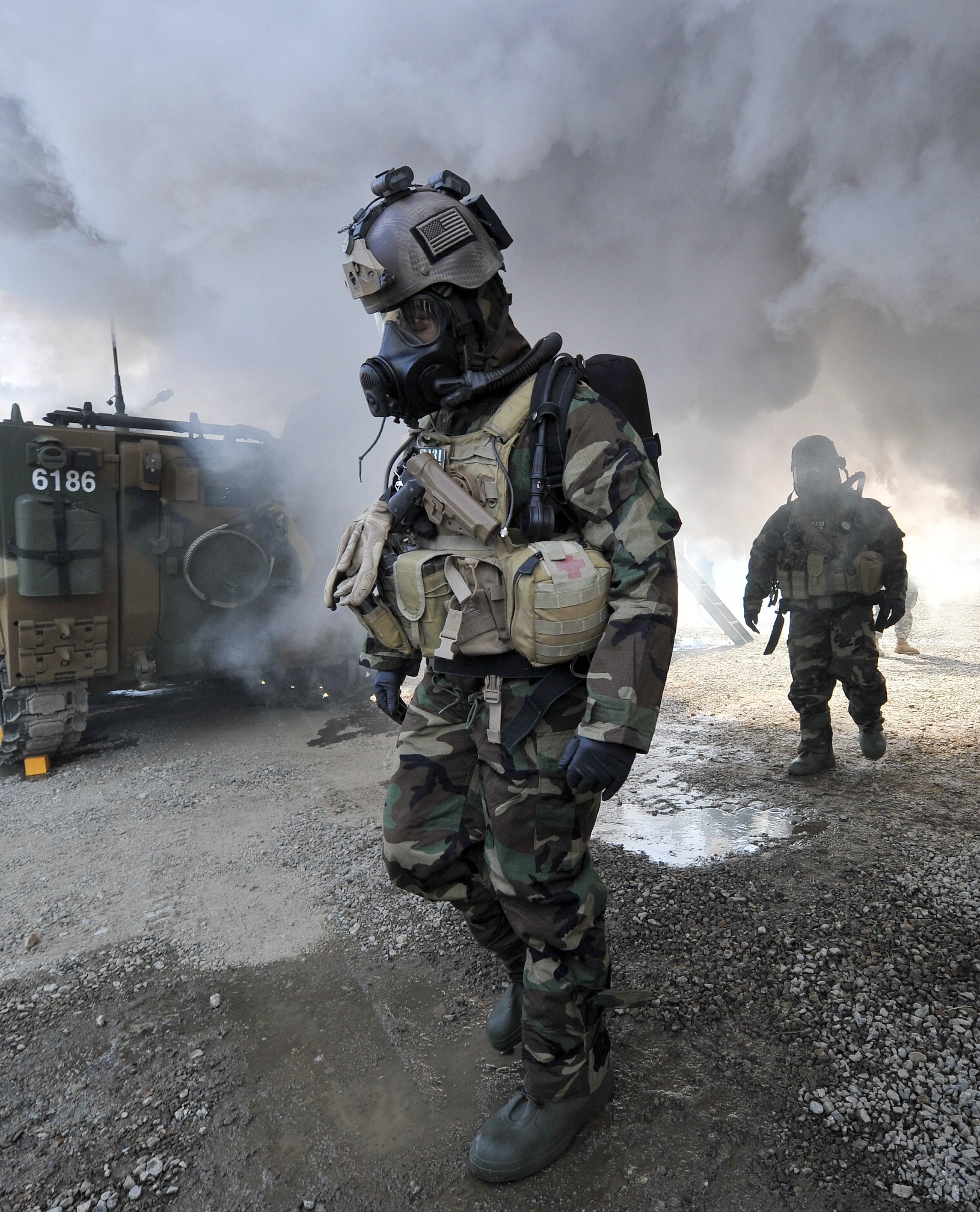The international inspectors charged with overseeing the destruction of Syria’s chemical weapons arsenal have begun their work, but even as they began carrying out their inspections in Damascus, deadly clashes between Syrian troops and fighters from the al-Qaida-linked Jabhat al-Nusra continued on the edge of the city.
The inspections taking place on the ground against a backdrop of conventional weapons violence is a reminder of one of the more glaring and much-discussed contradictions of the global response to the Syrian conflict, the international community’s—particularly the American government’s—intense concern over the use of chemical weapons and relative indifference to violence committed with other weapons.
In a comment on the Foreign Affairs website last week, University of Colorado political scientist Betcy Jose wonders whether the international community is focused on the wrong norm in Syria. After all, isn’t the intentional targeting of civilians, with any form of weaponry, also a violation of international law?
[E]xamining the civilian deaths through the lens of the norm against the use of chemical weapons is wrongheaded. Civilians died because Syria violated the taboo against deliberate attacks on civilians. Some have even suggested that the general lack of global condemnation following other intentional attacks on Syrian civilians might have paved the way for this most recent atrocity. If that is so, the international community should expend as much effort (if not more) protecting the civilian immunity norm as it is protecting the chemical weapons taboo.
At the Duck of Minerva blog, political scientist Charli Carpenter of UMass Amherst takes up the question of why the norm against chemical weapons seems to be taken more seriously than what would seem to be the far more fundamental norm against killing civilians.
She suggests that chemical weapons are so universally condemned “not primarily due to the spectre of dead civilians, but rather the way that weapons of this particular type threaten international order and state sovereignty ”:
[A]side from being indiscriminate, they are uncontrollable and as such they threaten not just civilians but also policymakers and their allies. States are historically far more terrified of weapons that can, once deployed, backfire on them or fall beyond sovereign control than with equally horrifying weapons whose deployment and effects more subject to the limitations states place on them.
Like the norm against the assassination of heads of state, Carpenter argues, chemical weapons are considered a “red line” because they are considered threats to the powerful, not because they are threats to civilians.
Chemical weapons are unusual also because the international norm against them predates their actual use. The Hague Declaration of 1899 required that nations “abstain from the use of projectiles the object of which is the diffusion of asphyxiating or deleterious gasses.”
This norm, of course, failed to prevent their use on the battlefield during World War I, and efforts to permanently ban these weapons picked up steam after the war. But the contradiction in the public outrage over these weapons was pointed out by some even then.
“War is abhorrent to the individual, yet he accepts blowing men to pieces with high explosive, mowing men down with machine guns, and even sinking a battleship in mid-ocean with its thousand or fifteen hundred men being carried to certain death. … However, to burn the skin of a man outrages all his civilized instincts.” Earl J. Atkisson, commander of the U.S. 1st Gas Regiment during World War I, wrote in 1925.
The public tends to be uniquely repulsed by newly introduced weapons but accept their legitimacy over time. Nearly a century after they were first used, however, the taboo against chemical weapons remains very much in force. Without in any way diminishing the danger of these weapons or the suffering they cause, it’s still worth considering why we find them so uniquely abhorrent and why this attitude can’t be applied to other forms of killing.
